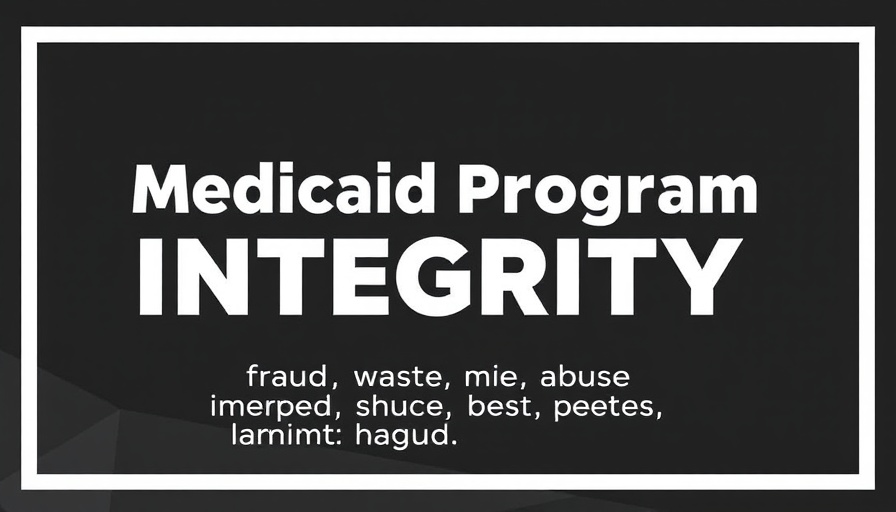
Understanding Medicaid's Impact on Millions
Medicaid plays a vital role in the U.S. healthcare landscape, providing comprehensive coverage to approximately 83 million low-income individuals. Accounting for one-fifth of the nation's healthcare spending, the program is jointly funded by federal and state governments, yet administered at the state level. Given its extensive reach and financial implications, decisions affecting Medicaid are significant for both its beneficiaries and taxpayers.
The Current Debate Over Medicaid Funding
Recently, discussions surrounding Medicaid have intensified, particularly regarding potential budget cuts of up to $880 billion over the next decade proposed by the House budget resolution. Addressing issues of fraud, waste, and abuse has been at the forefront of these discussions. While these problems are often highlighted, understanding the nuances between fraud—intentional deception—and improper payments, which include errors due to missing documentation, is crucial in forming a comprehensive perspective on Medicaid integrity.
Public Perception of Medicaid Integrity
Polling data reflects a strong public sentiment regarding the integrity of Medicaid. Approximately 77% of Americans view the program favorably, indicating broad support across political affiliations. Yet, many citizens express concern that efforts to root out fraud may inadvertently lead to a reduction in benefits. This fear colors the public's perception of potential changes to the program, as evidenced by polling where a majority of respondents from both parties believe that cuts intended for fraud prevention could negatively impact Medicaid recipients.
Defining Fraud, Waste, and Abuse
Understanding the definitions and implications of fraud, waste, and abuse is essential. Fraud involves intentional acts of deception for an unauthorized benefit, while abuse refers to practices inconsistent with acceptable standards leading to unnecessary costs. Waste encompasses inefficient use of resources resulting in avoidable expenses. Complicating this issue, the recent emphasis on improper payments—which predominantly stem from clerical errors rather than fraudulent actions—has created misconceptions regarding the prevalence of fraud within the system.
Improving Program Integrity
Efforts to enhance Medicaid's program integrity are ongoing, focusing on preventing fraud and ensuring that funds are allocated appropriately. Strategies implemented by the Centers for Medicare & Medicaid Services (CMS) stress the importance of prevention and detection. Since 2006, the Medicaid Integrity Program has worked in conjunction with states to foster best practices and increase awareness of fraud, waste, and abuse. These initiatives aim to protect taxpayer dollars while ensuring that Medicaid can continue serving its critical role in healthcare.
What Lies Ahead for Medicaid
As the debate around Medicaid continues, it is vital to consider solutions that balance integrity with the needs of vulnerable populations. Policymakers must navigate the complex landscape of healthcare funding, ensuring that measures designed to eliminate fraud do not hinder access to necessary care. Broadly addressing the challenges of Medicaid spending with compassion for those who rely on it will be key in shaping its future.
In conclusion, understanding the nuances of Medicaid integrity is essential for insured and uninsured citizens alike as it touches on core issues of healthcare access and efficiency. By promoting responsible oversight and engaging in informed discussions, individuals can advocate for a Medicaid program that not only combats fraud effectively but also maintains its essential services for millions.
 Add Row
Add Row  Add
Add 




Write A Comment